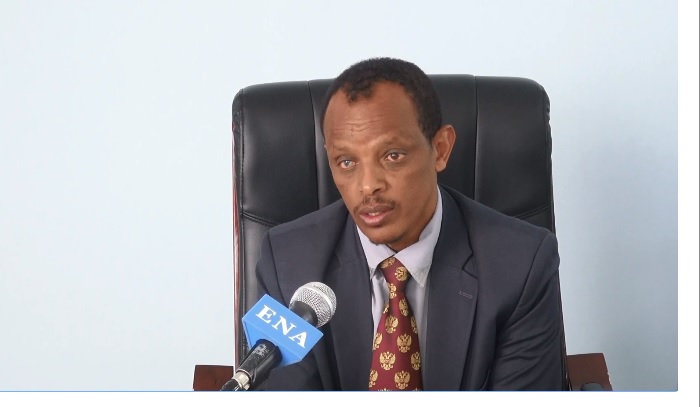Ethiopian Satellite Expected to Save over 350 Million Birr Annually - ENA English
Ethiopian Satellite Expected to Save over 350 Million Birr Annually

ENA November 30/2019 With the launching of its first-ever remote sensing satellite in less than a month, Ethiopia will be able to save about 350 million birr that used to be paid for the services required, according to Ethiopian Space Science and Technology Institute (ESSTI).
In an exclusive interview with ENA, Space Science and Technology Institute Director-General Solomon Belay revealed that an assessment made two years ago on only 6 ministries showed Ethiopia expended over 350 million birr for data obtained via space satellites.
“The amount of money that the government saves will be seen after one year, which is the best way to estimate the cost. We can save not less than 350 million birr,” he stated.
Besides saving huge amount of money, the earth observation satellite will enable the country to access data whenever needed and that supports the country in realizing its aspiration of growth and development, according to Solomon.
Investing in the space is productive as it helps nations to start developing their capacity and addressing social problems.
In order to realize the launching of ETRSS-1 that will be launched in December, 2017 and manage, assemble as well as construct other different types of satellites, 20 Ethiopians took training.
Speaking of the major benefits from the satellite, the Director-General said:
“Our economy mainly depends on agriculture, and currently climate change is the most serious challenge in the world, environmental protection is resource and mining Ethiopia’s priority; administration of water as well as urban and rural land has also been a challenge.”
Furthermore, he explained that the satellite will focus on all agricultural sectors with special priority in products like wheat and coffee.

Similarly, Innovation and Technology Minister Getahun Mekuria said the satellite will benefit the nation in many ways as space science has now become the major economic contributor to particularly developing countries.
“The satellite will be used for monitoring the environment and agricultural areas. It's basically a remote sensing satellite useful for observation of the earth, especially our environment in Ethiopia and in some eastern African countries,” he elaborated.
Being an agrarian country, Ethiopia will benefit from satellite technology that supports monitoring of agricultural production and forecast of yield as well as advance warning of natural disasters.
The minister further stated that developing countries like Ethiopia are joining the space arena not because they have surplus budget, but because it significantly supports their developmental agenda.
After launching the ETRSS-1 from China on December 17, Ethiopian engineers will fully take over the control and monitoring of the satellite from the multi-satellite tracking and data receiving ground station built at Entoto Observatory on the outskirts of Addis Ababa.
Getahun said, “We will be fully monitoring the satellite from this ground station and also receiving the data that come from the satellite. So, we will be in control of our own satellite.”
Ethiopia’s ongoing space exploration and catching up with technological advancement will have significant impact on the country’s overall development.